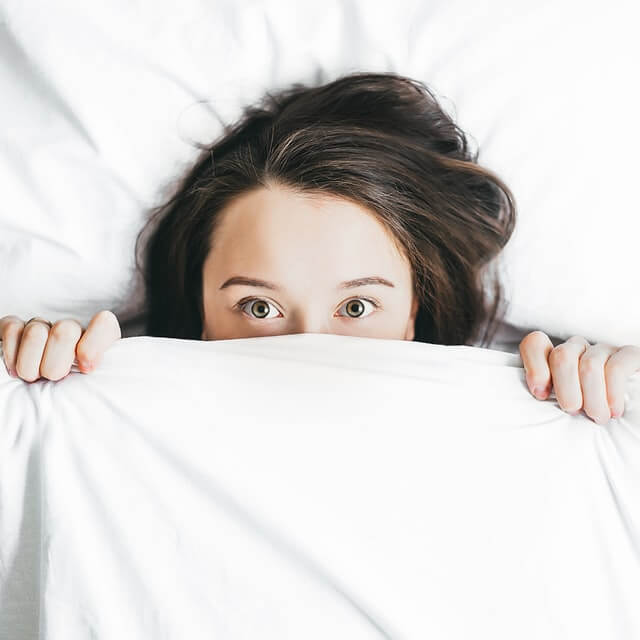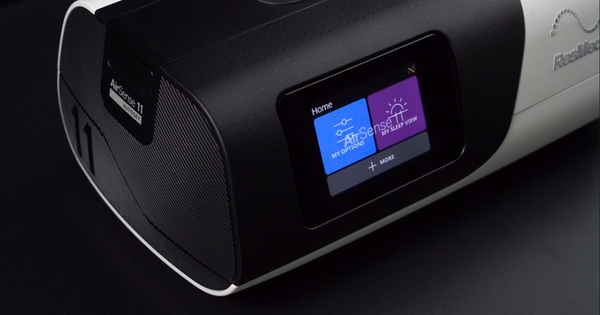Sleep Health: Can Sleep Quality Impact Our Immune Systems?
March 24, 2020

Have you ever been sick and have had one or more people tell you that you need to rest up? This seems like one of the most common pieces of advice when we are feeling poorly. While sleep can certainly help you recover faster when you’re already ill, what about those who can’t sleep?
In this article, we are looking into whether it is possible for prolonged poor sleep quality to have an impact on our immune systems. Can sleep disorders like insomnia actually make us sick?
Prolonged Sleep Loss: Could It Be Making You Sick?
We all know that our sleep quality is important and that we should ideally be achieving at least 7-8 hours of sleep each night. However, even if it is slightly less than this, more often than not we are still healthy in other ways.
But if we lose out on quality sleep over a long period of time, does this have the ability to impact our immune systems even if we are exercising and eating as we should? Research says yes.
Have you ever gone through an extended period where you just can’t sleep properly? Maybe you were going through a stressful time or had a newborn baby. Did you wake up feeling a little more run-down than usual? If so, you are not alone.
Many research studies suggest that even the slightest disruption to our sleep schedule can impact our immune levels. As sleep is a necessity to our overall health, poor sleep quality means that we are more at risk of picking up viruses such as the common cold and it may also impact our recovery time if we do get sick. For those who have disorders such as Sleep Apnea or insomnia, it is not uncommon to experience changes related to the cardiovascular system, digestive system and mental health due to the lack of restful sleep.
So, if you are feeling more run-down than usual, it may be time to examine your sleep schedule habits.
The Connection Between Sleep Health And Immunity
When it comes to our immune system, sleep is the best line of defence for fighting off viral and bacterial infections. And there is a reason for this.
While we are asleep, our bodies produce a protein called cytokine. Cytokines are protein structures that naturally increase in order to fight off inflammation, infection and also to counteract the effects of stress. With a healthy sleep schedule, these proteins are instinctively working in the background to make sure that our bodies will be capable of staying healthy during waking hours.
So what does this mean for our immune systems if we can’t achieve an ideal sleep schedule? Well, the fact of the matter is that these proteins are only produced when we sleep. Prolonged sleep loss means that our bodies have a lower ability to produce the antibodies needed to keep us in optimal health. In fact, many sleep matter experts have noted that even vaccines such as the flu vaccine have been known to work less effectively when we experience poor sleep health.
While people can always take additional preventative measures to boost their immune systems such as taking vitamins and supplements or washing their hands frequently, sleep really is the best medicine for a healthy body.
What Symptoms Can You Begin To Experience?
So, now that we know that there is a direct correlation between sleep quality and the immune system, what are some of the symptoms you could experience from sleep loss?
Decreased Cognitive Functioning
Sleep loss has a direct impact on our ability to carry out normal everyday cognitive functions such as retaining memories and paying attention. It is not uncommon for those with poor sleep health to make more mistakes, have accidents and experience prolonged feelings of brain fog. Not only is lack of sleep a contributor to decreased cognitive functioning but also, poor immune levels.
Our brain and immune system are also intrinsically linked. Reports suggest that our brain health is also largely determined by our immune system. When our immune system is working correctly, it has the ability to enhance the central nervous system and cognitive abilities. However, when our immune levels are compromised this can also affect our cognitive functioning.
Increased Blood Pressure
High blood pressure or hypertension is very common with sleep disorders such as insomnia and Obstructive Sleep Apnea (OSA). Without effective treatment, those with hypertension are at an increased risk of developing heart disease or experiencing a stroke.
We already mentioned the reason this symptom shouldn’t be ignored as it could be an indicator of Sleep Apnea. However, it may also be caused by a weakened immune system.
How you may ask? Well, it’s all down to the role that macrophages play. A macrophage is a type of white blood cell that makes up part of the immune system. It acts as an identifier of foreign bodies and molecules in the body.
Research carried out by the University of Edinburgh has found that it also has the ability to regulate hormones that contribute to high blood pressure. When our immune systems are low or compromised, it leads to a higher possibility that macrophages are unable to operate optimally. This means experiencing prolonged sleep loss could increase your risk of developing cardiovascular issues.
Weight Gain
If your sleep quality is poor, you may also notice that you could gain extra weight. Sleep deprivation has the ability to change the hormones that regulate hunger and appetite. The hormone leptin is suppressed while the hormone ghrelin increases, meaning that your body starts to crave more fatty and sugary foods.
Obesity has also been linked to an increased risk of bacterial infections and is believed to contribute towards a weaker immune system. This is because it’s believed that weight gain can disrupt vital mechanisms in the body that fight off infections.
Ways That You Can Achieve Optimal Sleep & Physical Health
The good news is that there are ways that you can improve your sleep quality while also safeguarding your immune system. Many experts recommend that you try alternative methods for achieving a healthy sleep schedule rather than relying on sleeping pills.
Change your sleep habits by introducing a new sleep routine. Make sure that you go to bed and wake up at the same time each day. This will help your circadian rhythm to develop a recurrent loop. Next, take a look at your sleeping environment. Ensure that your room is the right temperature and remove any devices that disrupt the room’s natural lighting. Finally, practise self-care and relaxation before going to bed. Read a book, do yoga or even take a warm bath while listening to music.
By making some small lifestyle changes when it comes to our sleeping routine, we can actively make a difference to the quality of sleep that we achieve and ultimately, our health. If your situation persists and you haven’t been diagnosed with a sleeping disorder, make an appointment with a sleep specialist to discuss your problems. Don’t worry, better sleep and health is just around the corner.
Share:
Leave a comment
Comments will be approved before showing up.



